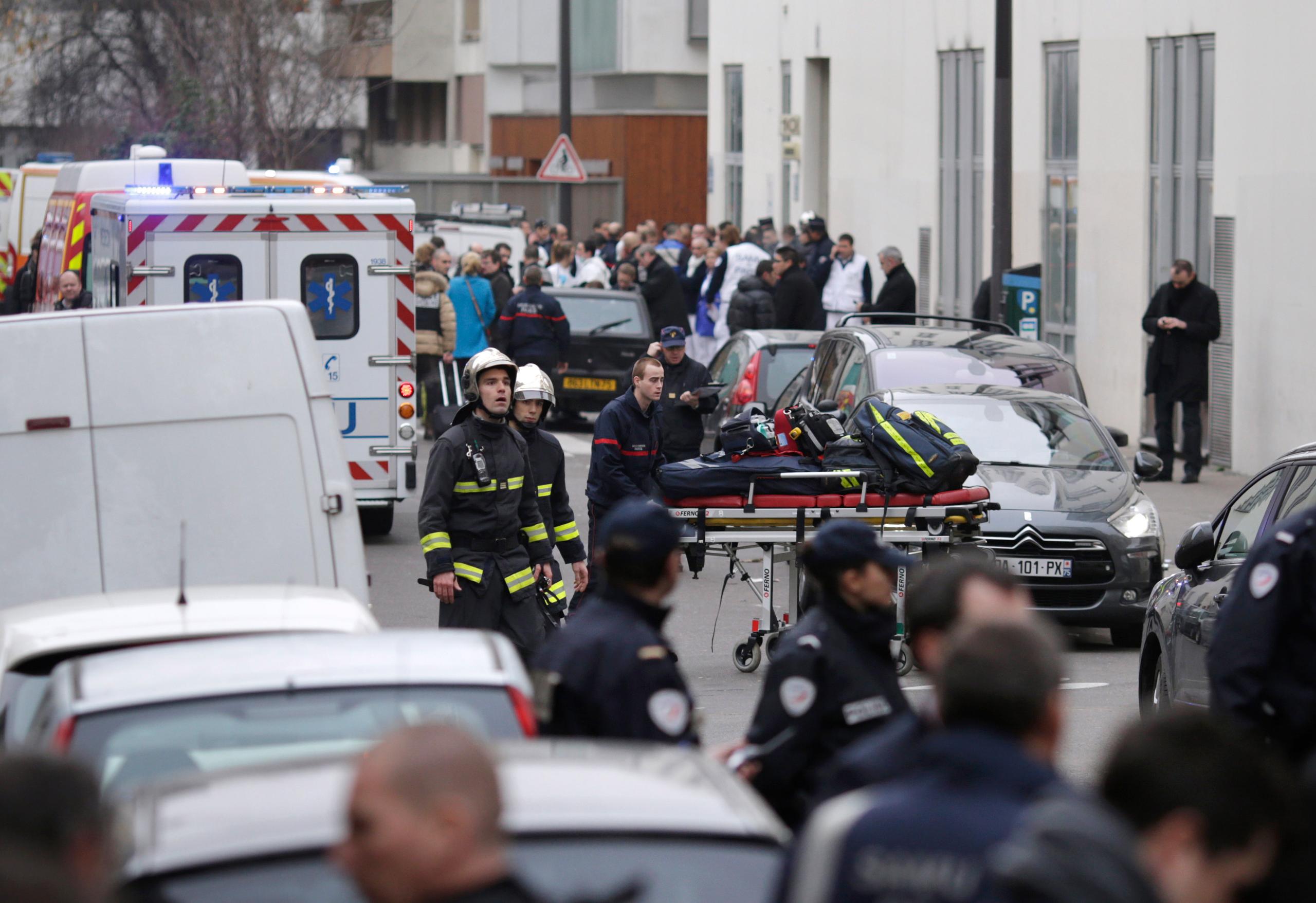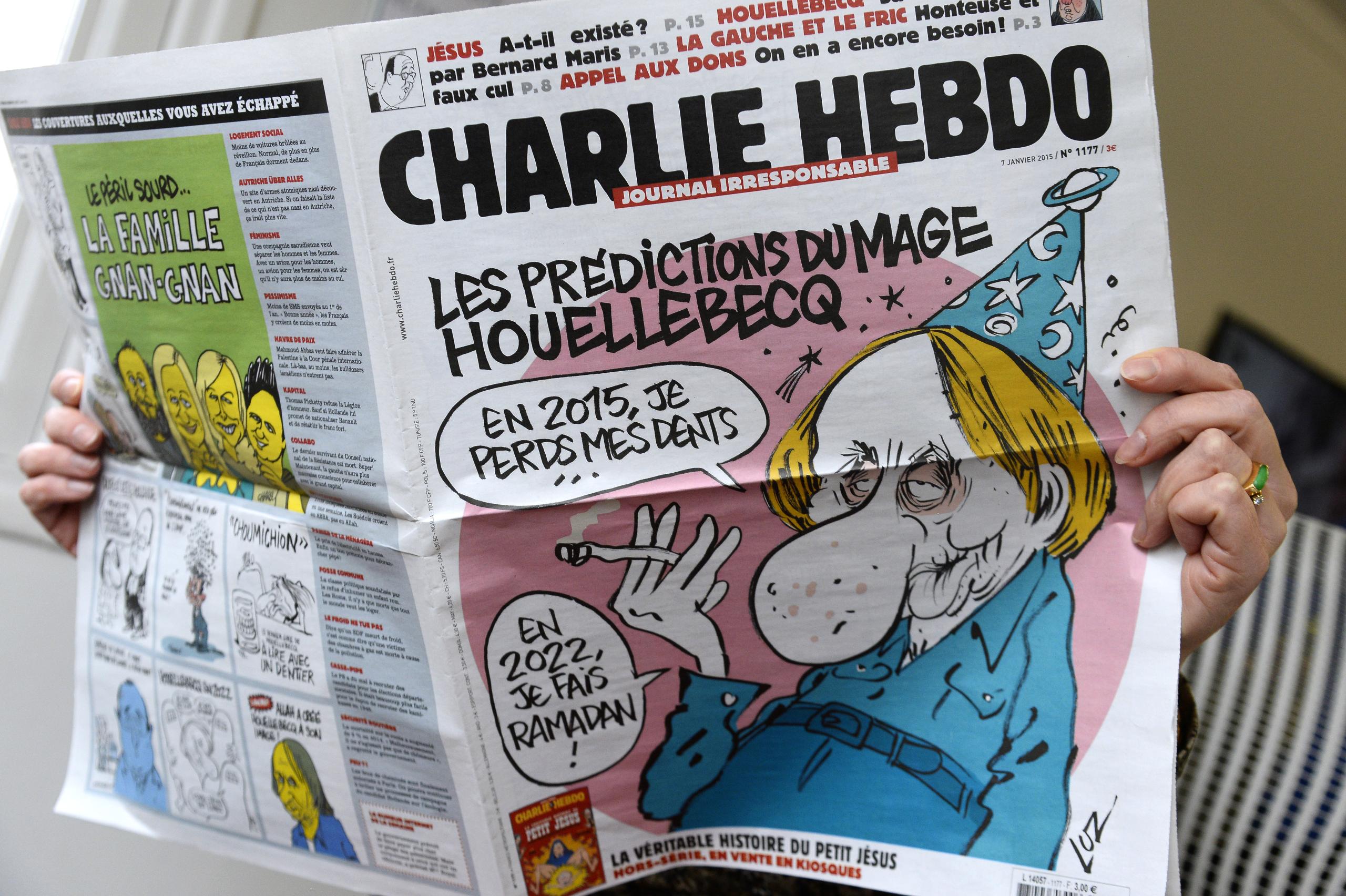Swiss condemn massacre of Charlie Hebdo journalists

Swiss President Simonetta Sommaruga has condemned the terrorist attack on French satirical magazine Charlie Hebdo. On Wednesday, gunmen stormed the publication’s Paris office – killing at least 12 people.
“The Swiss government is deeply shocked by this terrible attack. We offer our condolences to all the relatives and friends of the victims. This attack is an assault on democracy, human rights, the freedom of the press and the freedom of expression,” Sommaruga told Swiss public television, SRF.
She says there are no indications of a related terrorist attack planned in Switzerland at the moment, but that the Swiss authorities are in close contact with their French peers and that the government is monitoring the security situation attentively.
“It is a difficult situation and probably a difficult phase, once again, in the fight against terrorism which continues or has only just begun,” Swiss Foreign Minister Didier Burkhalter told Swiss public radio, SRF.
Charlie Hebdo is a weekly satirical magazine that is known for mocking radical Islam. One of the hooded gunman was filmed shouting “Allahu Akbar! (God is greatest!)”.
Of the 12 people killed, two were police officers. Another 11 people were injured, four of them critically. Cartoonist Corinne Rey, alias Coco, managed to hide under her desk. She also works for Vigousse, a Swiss satirical magazine.

A black day
Médias Suisses, a publishers’ association from the French-speaking part of Switzerland, has called it a “black day” for freedom of the press. Journalists’ association Impressum said it was deeply shaken by the incident.
“We condemn this attack on freedom of the press and freedom of expression, and call on the authorities to hold those responsible for the massacre, and their supporters, accountable,” said Impressum in a statement.
Hanspeter Lebrument, head of the Swiss Publishers’ Association, asked whether Swiss editorial departments were safe enough. He also noted that it was getting difficult for journalists to describe the relationship between locals and Muslim immigrants.
Zeid Ra’ad Al Hussein, the UN High Commissioner for Human Rights, said he was concerned that the attack could worsen relations between different groups.
“Those who try to divide communities based on religion, ethnicity or other reasons must not be allowed to succeed,” he said, calling the attack “appalling” and “barbaric”.
“With xenophobia and anti-immigrant sentiments already on the rise in Europe, I am very concerned that this terrible act could be exploited by extremists on all sides,” he concluded.
Eye for an eye
Jacques Baud, a Swiss anti-terrorism expert, says the attack is a typical example of radical Islam.
“It’s an eye for an eye attack. Even if it’s been ten years since Charlie Hebdo published its caricatures of the prophet Mohamed, the terrorists have delivered their bloody blow. They considered the caricature to be an attack on the prophet,” Baud told swissinfo.ch.
Baud, who has published several books on Islamic terrorism, says he hopes France does not go for the bait laid by the terrorists.
“The famous Mohamed caricature must not be published again, not in the name of the freedom of press. This would only be a new victory for the jihadists and those who oppose Islam in Europe, such as the movement in Germany. The latest assault is the consequence of a binary logic which came after the 9/11 attacks: those who are not with us are against us.”
But Baud has little hope of a change in attitude. He says the governments still have no strategy other than military or police intervention against radical Islam.
Solidarity
Some 500 people gathered in Geneva on Wednesday evening to pay tribute to the victims. Many held candles, pens or signs reading, “I’m Charlie”.
In Bern, about 200 media professionals participated in a rally organized by a media trade union.

In compliance with the JTI standards
More: SWI swissinfo.ch certified by the Journalism Trust Initiative









You can find an overview of ongoing debates with our journalists here . Please join us!
If you want to start a conversation about a topic raised in this article or want to report factual errors, email us at english@swissinfo.ch.